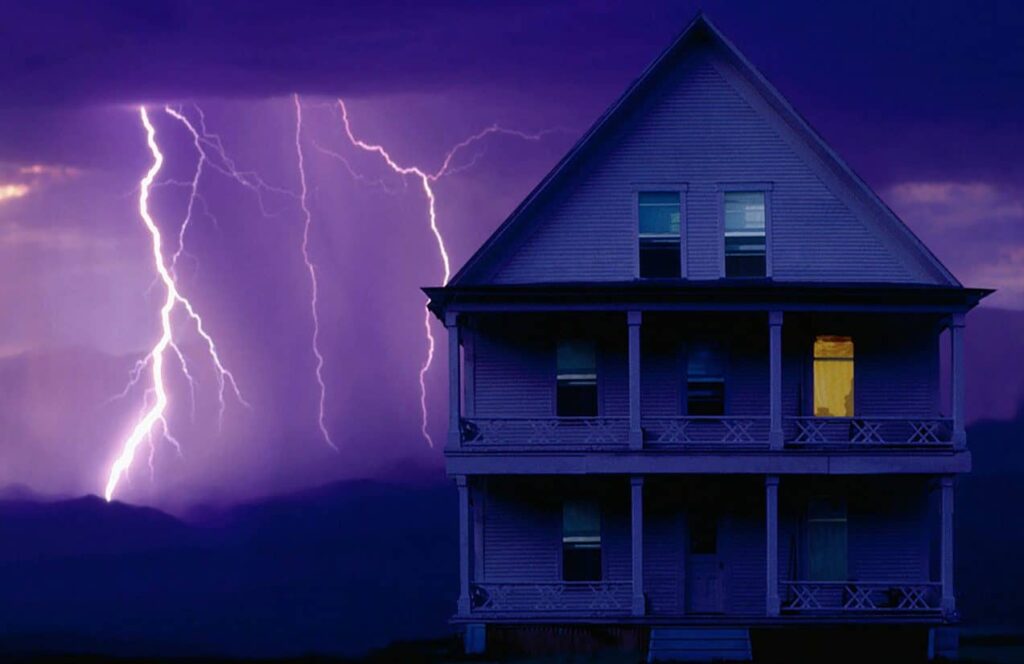 Imagine coming home from a long day, ready to relax, unwind and spend an evening with your family, only to find that something has gone seriously awry in your home. Anything from a burst pipe to a broken door to an can cause a gigantic mess, and these unpleasant surprises are downright stressful or even panic-inducing.
Imagine coming home from a long day, ready to relax, unwind and spend an evening with your family, only to find that something has gone seriously awry in your home. Anything from a burst pipe to a broken door to an can cause a gigantic mess, and these unpleasant surprises are downright stressful or even panic-inducing.
Sure, we may expect home damage or broken appliances during a thunderstorm or hurricane, but home emergencies aren’t just related to the weather outside. Pushing off less-urgent repairs, lack of regular care or just plain old age: any and all of these will contribute to the “perfect storm” that might send any element of your home into a tailspin. What’s worse than the problem itself, however, is being caught without a plan in place.
Some of these top home emergencies involve stopped plumbing, finicky electrical or broken doors and windows. Before you pick up the phone, though, take a deep breath and assess the situation. When is emergency maintenance called for? How can you be better prepared for an unexpected problem with your home?
Do you need emergency maintenance? Apply the “24-hour rule”
Generally, emergency maintenance is necessary if the issue could cause severe damage, may lead to bigger problems or is intruding on your daily life. An overflowing toilet is a perfect example of a home emergency. Water damage can cause the floor to buckle, and it could indicate a larger issue with the sewage system. Plus, nobody can use the bathroom.
[blockquote]Take a deep breath and assess the situation[/blockquote]
Once you determine the severity of your home emergency, use the “24-hour rule” – can the problem go unaddressed for 24 hours without causing severe damage? Think of it this way: did a few tiles come off your roof, or did a large swath blow off and there’s a thunderstorm on the horizon? If the latter is the case, you should schedule emergency maintenance right away.
If you think an issue may be life-threatening, don’t wait for emergency maintenance. Call 9-1-1 and leave your home immediately if you smell gas, experience a fire, sustained structural damage from a fallen tree or if significant flooding occurs. It’s also very important to develop and practice a family emergency plan so you know what to do in the event of a life-threatening emergency.
Be prepared for a home emergency
No matter how well you maintain your home, emergencies are bound to happen from time to time. Knowing basic information about your property and its vulnerabilities can go a long way in helping you handle home .
- Know the age of your home – If your home is older, you may run into more “emergency” issues than you would with a newer construction. Similarly, it is important to know the age and status of major investments such as the hot water tank or the roof. This information can help identify a problem and determine the urgency of the repair.
- Have a good handle on what could go wrong. Living somewhere prone to tornadoes may mean that you may get more roof damage than the average homeowner, while living near a creek means you may experience more flooding. Know what your property is prone to and understand the associated risks.
- Have a home emergency budget — The top financial advisors suggest that homeowners should have an emergency maintenance fund of at least $5,000. Obviously, this depends on your income, savings and the condition of your home, but it is important to have cash on hand so you don’t need to worry about how you’ll pay for emergency maintenance.
The best emergency plan? Pay attention to the warning signs
There are many “warning signs” which will tell you when something needs fixing before it becomes an emergency. Is it super cold and water stopped flowing from your faucets? You may have a frozen pipe that could burst. Is an outlet sparking every time you plug something in? The wires might be damaged or the grounding may be faulty.
While scheduling routine maintenance is one of the most effective ways to prevent a home , we understand that not every issue is caught early. We’re here to help when the unexpected happens. HomeSquare’s certified, licensed and insured home improvement professionals are on call to stop the geyser gushing from the sink or check out a broken-down air conditioning system in the sweltering July heat – although we certainly hope it doesn’t come to that!






2 Comments